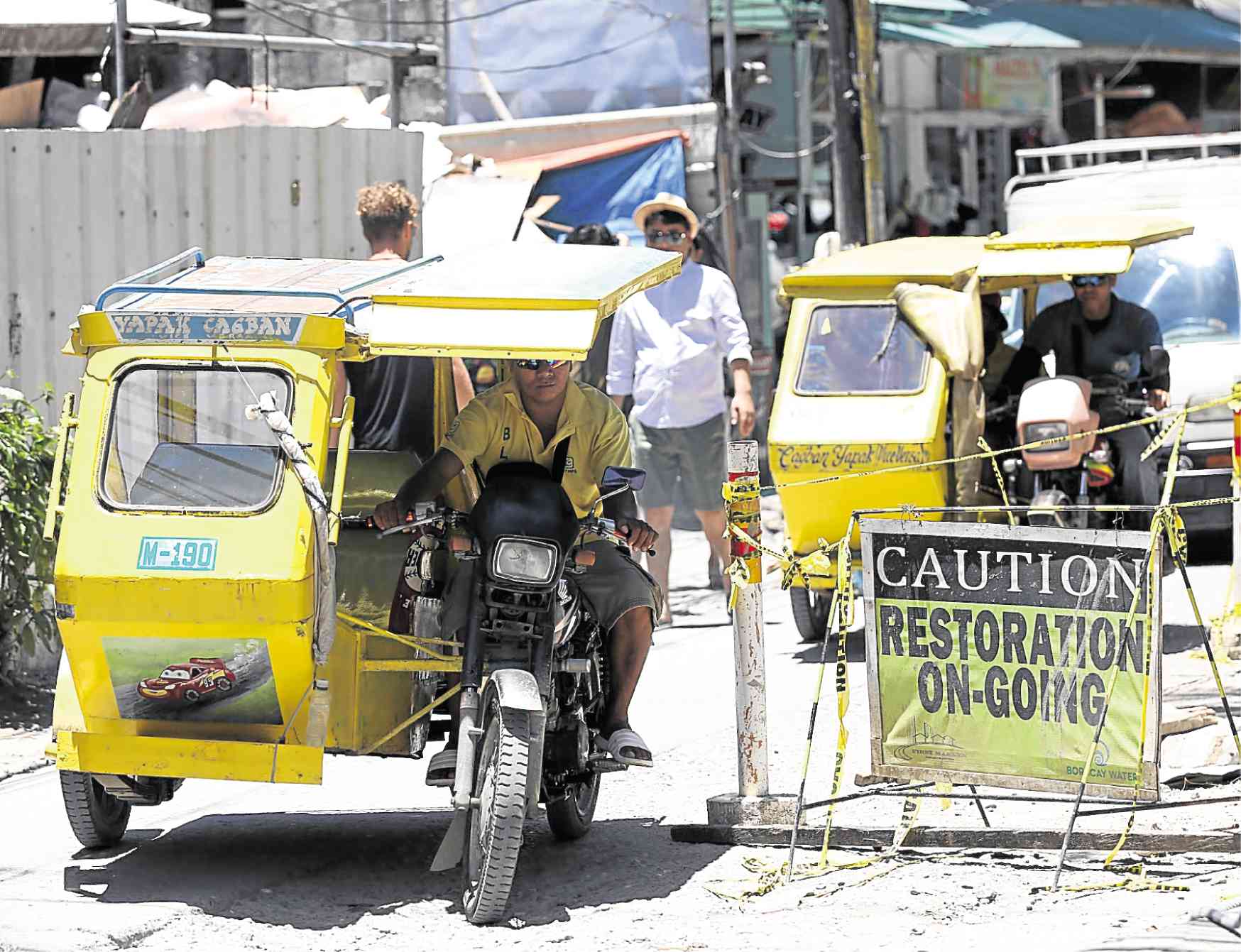
POLLUTANTS Tricycles like these would soon disappear in Boracay as authorities clean up the island tagged by President Duterte as a cesspool. —LYN RILLON
ILOILO CITY—The local government of Malay has started impounding tricycles on Boracay Island as part of the program to shift to electric tricycles.
Rowen Aguirre, municipal executive assistant for Boracay affairs and in charge of the program, said tricycles were being intercepted and impounded in the mainland of Malay town.
The municipal government of Malay had stopped tricycles from plying their usual routes as part of efforts to clear the island.
Tricycle operators have to apply for new franchises to operate an e-trike, or electric tricycle.
A Department of Environment and Natural Resources study had identified tricycles as the main contributor to air and noise pollution in Boracay.
Preferred by riders
At least 200 e-trike units were already operating and preferred by tourists because these are quieter and spacious.
Aguirre said the phaseout of tricycles would be completed by the end of August as part of the six-month Boracay rehabilitation plan of the municipal government.
The Land Transportation Office (LTO) is also impounding vehicles without valid or with expired registration.
Rolando Ramos, LTO Western Visayas director, said there were more than 4,000 vehicles on the island when the “ideal” number should be around 1,200.
Data from the Malay municipal transportation office showed a higher figure, with the number of registered private and public utility vehicles on the island reaching 5,122, as of Dec. 17, 2017.
Fewer vehicles
The LTO was also pushing to limit the number of service vehicles of hotels and resorts operating in Boracay.
Resorts and hotels with at least 50 rooms were allowed one service vehicle and a second one for those with 100 rooms.
Additional vehicles should be covered by separate franchises, according to Ramos.
Several vehicle operators and drivers have appealed for leniency due to the loss of livelihood or drastic drop in income of residents due to the closure of the island to tourists.